Facts In News
|
Better Than Cash Alliance
|
- Based at the United Nations (UN), it is a partnership of governments, companies, and international organisations that accelerates the transition from cash to responsible digital payments to help achieve the Sustainable Development Goals (SDGs).
- Headquarters: New York, US.
- It works with members on their journey to digitise payments by
- Providing advisory services based on their priorities.
- Sharing action-oriented research and fostering peer learning on responsible practices.
- Conducting advocacy at national, regional and global levels.
- It has 75 members which are committed to digitising payments in order to
- Boost efficiency & transparency.
- Women’s economic participation & financial inclusion.
- Help build economies that are digital & inclusive.
- Members do not want to abolish physical cash, as it is legal tender, but rather want to provide responsible digital payment options that are “better than cash”.
- India joined the alliance in 2015.
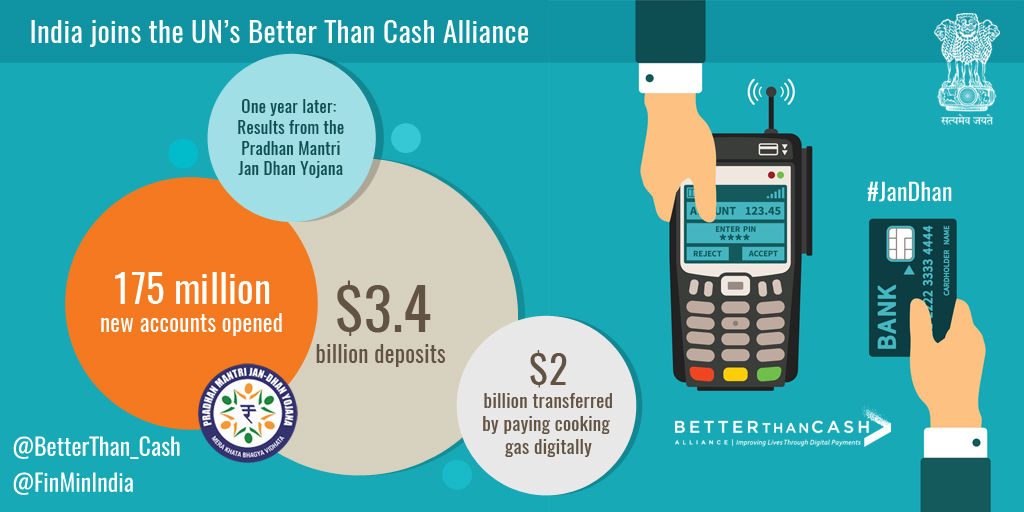
(Image Courtesy: BTCA)
|
National Mission on Pilgrimage Rejuvenation and Spiritual, Heritage Augmentation Drive (PRASHAD)
|
- The Ministry of Tourism launched it in 2014-15 with the aim of integrated development of identified pilgrimage and heritage destinations.
- Objectives
- Rejuvenate the pilgrimage and spiritual experience of the tourists through the availability of well-planned tourism.
- Infrastructure enabling tourist convenience, accessibility, security, cleanliness and experience.
- Revitalise/preserve the soul of the pilgrimage/heritage city through integrated, inclusive and sustainable developments that would spur employment opportunities for the local communities.
- Implementation: Through the identified agencies by the respective State/ UT governments.
- The implementing agency should be necessarily a state government agency or a state public sector undertaking (PSU) or any central agency and without any financial pendency with the Ministry of Tourism.
- Central Sanctioning and Monitoring Committee (CSMC) is responsible for sanctioning the projects submitted by the Mission Directorate and regular monitoring of the progress of the implementation.
|
Indian Knowledge Tradition Courses
|
- The Union Education Minister released the study material for the new programme launched by the National Institute of Open Schooling (NIOS).
- NIOS has started a programme named Indian Knowledge Tradition( Bhartiya Jnana Parampara)comprising 15 courses.
- The new NIOS programme has specific courses on Vedic studies, yoga, Science, vocational subjects, Sanskrit grammar, Indian philosophy, Sanskrit literature and Sanskrit language prepared for secondary and senior secondary level.
- All these subjects have been translated into the English language and will be later translated into other foreign languages as well to make them accessible to more number of students.
- The study materials are available to learners in Sanskrit and Hindi language.
|
10th Edition of Hurun Global Rich List, 2021
|
- The list is published by the Hurun Report Inc, a research platform based in Shanghai and Mumbai, which claims to be the world’s largest ‘rich list‘ provider.
- It was established in 1999 by British accountant Rupert Hoogewerf.
- The List reflects the world economy through the stories of the world’s most successful entrepreneurs.
- The Hurun Global Rich List 2021 ranked 3228 billionaires from 2,402 companies and 68 countries.

|
Independent Directors
|
- The Securities and Exchange Board of India (SEBI) has proposed sweeping changes to rules governing independent directors, including norms that pertain to their appointment and removal, eligibility criteria and remuneration structure.
- The Companies Act, 2013, defines an independent director of a company as a person who does not have any material or pecuniary relationship with the firm, or its directors and promoters.
- An independent director is a non-executive director of a company and helps the company in improving corporate credibility and governance standards.
- The independent director cannot be a managing director, a whole-time director or a promoter of the firm or its subsidiaries.
- It essentially means that companies cannot appoint family members or friends of promoters as independent directors.
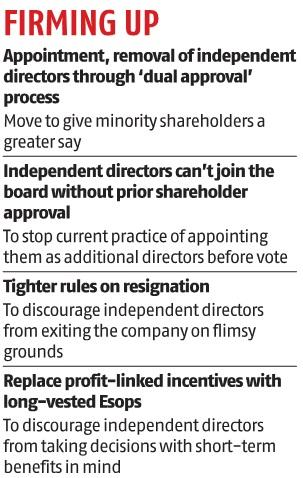
|
Mullaperiyar Dam
|
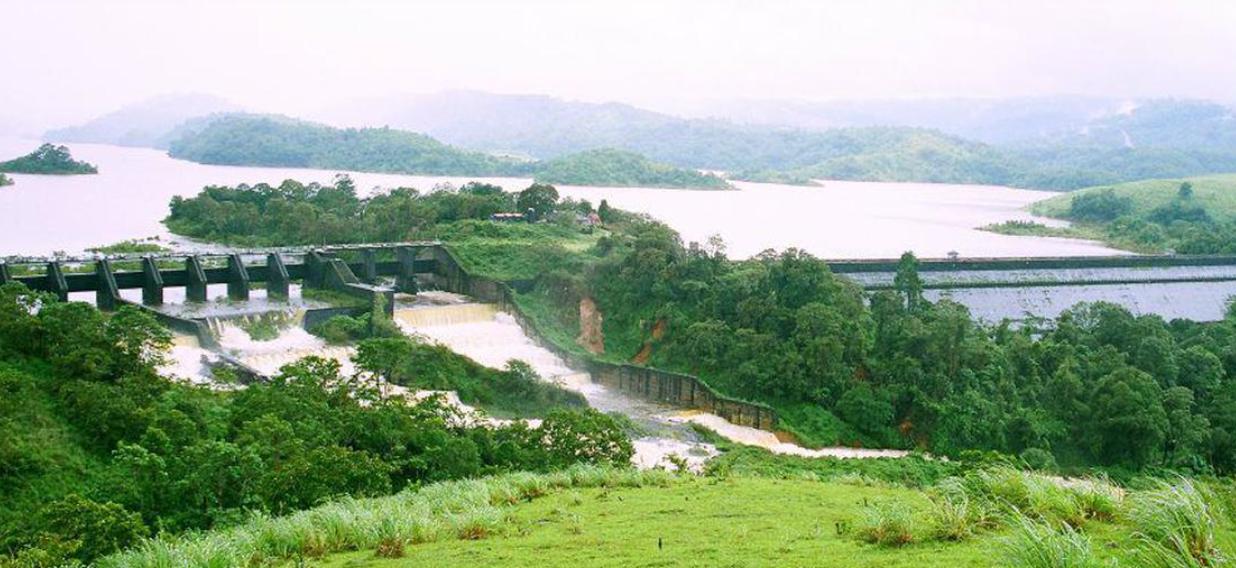
- It is a 126-year-old barrage (Masonry gravity dam on the Periyar River) that has dangerously outlived its 50 years of life.
- It is situated high up in the Western Ghats, adjacent to Kerala’s famed Periyar wildlife sanctuary.
- Mullaperiyar is listed among the world’s big dams that need to be decommissioned in a report by the UN University – Institute for Water, Environment and Health.
- It is dangerous due to both antiquity and seismic zone
- Decommissioning Mullaperiyar is strongly opposed by Tamil Nadu state, which inherited a lease agreement between the former princely state of Travancore (now Kerala) and the British government.
- The lease allows Tamil Nadu to operate the dam and divert 640 million cubic metres of water annually for irrigation and power generation through a tunnel bored into the Western Ghat mountains that form a wall between the two states.
- The matter is still subjudice in the Supreme Court.
- Kerala had informed the court of Central Water Commission (CWC) inspection report which said that 70% of the installed instruments for monitoring the safety and health of the dam were not working properly.
|
Digilocker
|
- DigiLocker is an Indian digitization online service provided by the Ministry of Electronics and Information Technology.
- Launched in 2015 under its Digital India initiative.
- It acts as a directory for storage of documents like marksheets, PAN Card, AADHAR, Driving Licence, Marriage Certificate, Insurance, Medical Reports etc.
- The locker can be accessed by individuals, using their mobile number.
- Apart from e-documents, DigiLocker can store a Uniform Resource Identifier (URI) link of e-documents issued by various issuer departments.
- Criticism is that DigiLocker does not provide a nomination facility under this rule.
- Recently, DU has also decided to release final passing certificates on Digilocker.
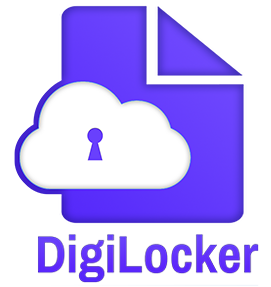
|
Nag River Pollution Abatement Project
|
- The Project has been approved in order to treat the sewage and industrial waste flowing into the Nag river.
- Nag river flows through Nagpur city, hence giving it the name.
- Its implementation will reduce the pollution level in terms of untreated sewage, flowing solid waste and other impurities flowing into the Nag river and its tributaries.
- It has been approved under the National River Conservation Plan and will be implemented by the National River Conservation Directorate.
- Cost: Rs. 2,117.54 crore.
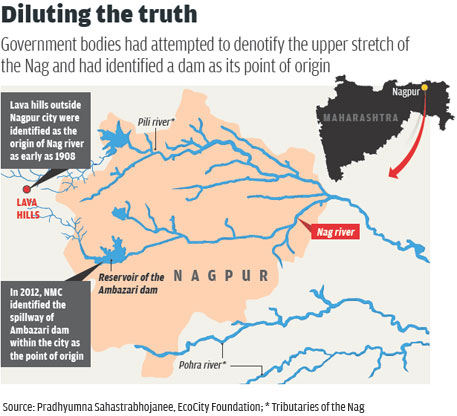
(Image Courtesy: DTE)
|
Cess and Surcharge
|
Cess
- A cess imposed by the central government is a tax on tax, levied by the government for a specific purpose. Eg.
- Education Cess: for financing primary education- is to be spent only for financing primary education (SSA) and not for any other purposes.
- Cess is a kind of tax on tax.
- Another difference between cess and the usual tax is the way in which tax revenue from cess is kept.
- Cess are first credited to the Consolidated Fund of India (CFI) and the Central Government may, after due appropriation made by Parliament, utilise the money for the specified purposes.
- Eg. The proceeds are kept as Central Road Fund (CRF) in the case of fuel cess (on petrol and diesel). The revenue collected is initially credited to the CFI and after adjusting for the cost of collection, Parliament through its appropriation bill, credits such proceeds to the Central Road fund.
- Another major feature of cess, like surcharges, is that the Centre need not share it with states.
Surcharge
- Surcharge is a charge on any tax, charged on the tax already paid.
- The main surcharges are on personal income tax (on high income slabs and on super rich) and on corporate income tax.
- From the revenue side, surcharges are important as around 35% of all cesses and surcharges comes from the surcharge on direct taxes.
- A common feature of both surcharge and cess is that the centre need not share it with states.
Difference between Usual Taxes, Surcharge & Cess
|
Usual Tax (Article 269)
|
Surcharge (Article 271)
|
Cess (Article 270)
|
|
Goes to CFI and can be spent for any purpose
|
Goes to CFI and can be spent for any purpose
|
Goes to CFI but can be spent only for specific purposes.
|
|
Union needs to share with state as per Finance Commission
|
Not shareable with States
|
Not Shareable with States
|
Recent Developments
- Cess, surcharge share doubled to 19.9% of central taxes in FY21: Report
- This massive spike in Cess and Surcharge has forced the 15th Finance Commision to suggest a higher Grant-in-Aid with lower share in divisible pool of taxes.
|
.jpg)





